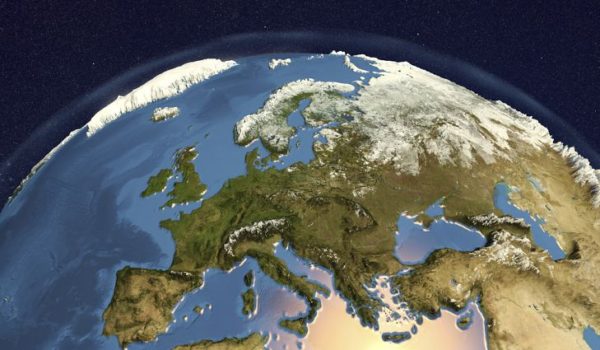When discussing developed European countries, Western Europe is usually what comes to mind. This region is home to the core of the European Union, the countries with the strongest economies in the region, which have united the others around them. However, let’s set aside the boring economics—there’s plenty of interesting stuff here even without it.
Ancient cities, fascinating traditions, strict laws… All of this is combined with a high standard of living, a similarly high cost of living, and much more typically associated with Western Europe.
Facts About Western Europe
- Western Europe typically includes 11 countries, although this list varies according to different organizations.
- The most widely spoken language in Western Europe is English. French and German occupy the second and third spots, respectively.
- This region is home to several small yet prosperous microstates, including Liechtenstein, Monaco, and Luxembourg.
- In terms of area, Western Europe is nearly three times smaller than Eastern Europe.
- The aforementioned Principality of Monaco is the smallest country in the world, aside from Vatican City, with an area of about 2 square kilometers.
- France is the largest country in Western Europe by area.
- Germany boasts the largest population among all Western European countries, with over 83 million people calling it home.
- Western European countries have the highest number of bicycles per capita, especially in the Netherlands and Belgium, where cycling is the primary mode of transport for many residents.
- Brussels is considered the rainiest city in Western Europe. Because of this, its population is not growing but declining, as many people find the local climate unappealing.
- Part of Western Europe, particularly in the Netherlands and Belgium, lies below sea level.
- Western Europe is home to some of the world’s most visited cities, including Paris, London, and Amsterdam, attracting millions of tourists each year.
- The European Alps, which span across several Western European countries like France, Switzerland, and Italy, are one of the most popular destinations for skiing and mountaineering.
- The Euro, the official currency of the Eurozone, is widely used across Western Europe, facilitating travel and trade among the member states.
- Western Europe is known for its high-quality healthcare systems, with countries like Switzerland, Germany, and the Netherlands ranking among the best in the world.
- The region has a rich cultural heritage, with numerous UNESCO World Heritage sites, including the historic centers of Bruges in Belgium, Florence in Italy, and the Palace of Versailles in France.
- Western Europe is famous for its extensive public transportation networks, particularly in cities like London, Paris, and Berlin, where subways, trams, and buses are heavily used.
- The region is a leader in green energy and sustainability initiatives, with countries like Denmark and Germany investing heavily in wind and solar power.
- Western Europe is home to some of the oldest universities in the world, such as the University of Bologna in Italy, founded in 1088, and the University of Oxford in England, founded in the 12th century.
- Western European cuisine is incredibly diverse, from French haute cuisine to Italian pasta and Belgian chocolate, making the region a food lover’s paradise.
- The region has played a significant role in the history of art and literature, being the birthplace of movements like the Renaissance, Baroque, and Romanticism, and home to legendary artists and writers such as Leonardo da Vinci, Rembrandt, and Shakespeare.
- Western Europe is known for its progressive social policies, with many countries leading the way in areas such as gender equality, LGBTQ+ rights, and social welfare.
- The region’s architectural styles range from medieval castles and Gothic cathedrals to modern skyscrapers and innovative urban designs, reflecting its long and varied history.
- Western Europe is a hub for international organizations, including the European Union headquarters in Brussels, NATO in Brussels, and the United Nations offices in Geneva.
